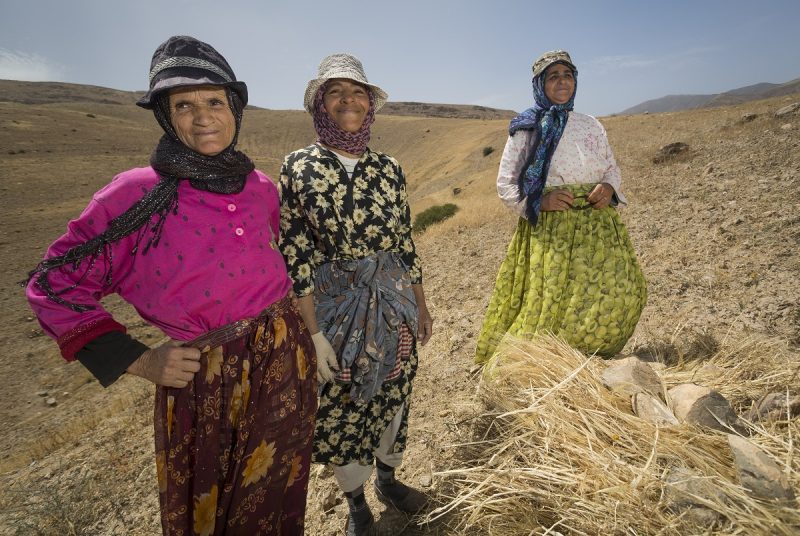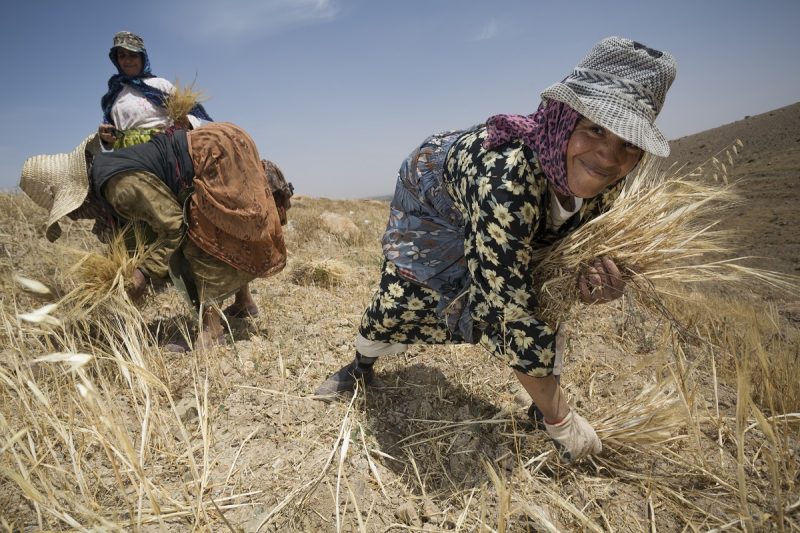
Jake Lyell for MCC
MCC's investment in Morocco is helping to provide farmers and their families with secure rights to the land they have been farming for generations.
A partnership between the Government of Morocco and the Millennium Challenge Corporation (MCC) is focusing on improving rural incomes in Morocco by providing farmers and their families with secure rights to the land they have been farming for generations.
In Morocco, the agriculture sector, directly and indirectly, employs nearly 40 percent of Morocco’s workforce, with a similar proportion of the population living in rural areas. Yet, agriculture contributes only around 12 percent of Morocco’s GDP due, in part, to low agricultural productivity.
This low agricultural productivity is partly due to a complex legal framework for land in Morocco, which blends customary, Islamic and French protectorate-era laws. About 42 percent of land in Morocco is held in ethnic collectives, which are historically based on tribal origins. The land is administered in trust by the Ministry of Interior and individual members of the collective have usage rights. Much of this land is not as productive as it could be because farmers don't have incentives to invest nor do they have access to financing to invest, since real title, that could otherwise be mortgaged to raise financing, is not in their hands. They also lack the right to buy or sell the land, and face restrictions in passing land on to their heirs.

Jake Lyell for MCC
Women farmers in Morocco often struggle to gain land rights. The MCC program will create opportunities for more women to be recognized as land rights holders.
MCC’s investment in Morocco will help rural farming families benefit from land titles. As a first step, the program provided technical assistance to the Government of Morocco to agree on a step-by-step process for melkisation that is more time and cost effective and respects the highest international standards for protecting the rights of all people who are affected, including women and other vulnerable groups. The process ensures communities are involved, and focuses on increasing women’s participation.
MCC’s work in Morocco aligns with the Women’s Global Development and Prosperity Initiative recently established by the White House in an effort to advance women’s economic empowerment across the globe. Clarifying land rights in the country would be a boon for women, whose ability to own land has traditionally been subject to the multiple systems of law that co-exist in a complex and sometimes contradictory framework. The Government of Morocco adopted the improved process in July 2018.
A ceremony on June 26, 2019 in Rabat, Morocco, marked the official launch of the melkisation process. Over the next three years the titling process will be piloted in two irrigated perimeters covering about 67,000 hectares of land across the Gharb region, a fertile coastal lowland plain of northwestern Morocco, and the Haouz region near Marrakech. For a sense of scale, this is nearly four times the area of the District of Columbia.
To ensure and amplify the benefits of land titles to the farmers and their families, the program will partner with Moroccan institutions working at the local level to deliver legal and financial literacy training, facilitate access to credit, train farmers on improved agricultural practices and promote economic empowerment opportunities for women and youth.
After the process is applied through the compact, the Government of Morocco intends to refine and apply it across other irrigated, collective lands in the country, covering an area of over 300,000 hectares. Land titles will provide rural families with the freedom, security and incentives to invest in their land, improve agricultural output, and develop sustainable farming practices.
This program is a key part of the policy and institutional reforms supported by MCC’s $450 million compact with Morocco and is expected to benefit 31,000 farmers and their families.

